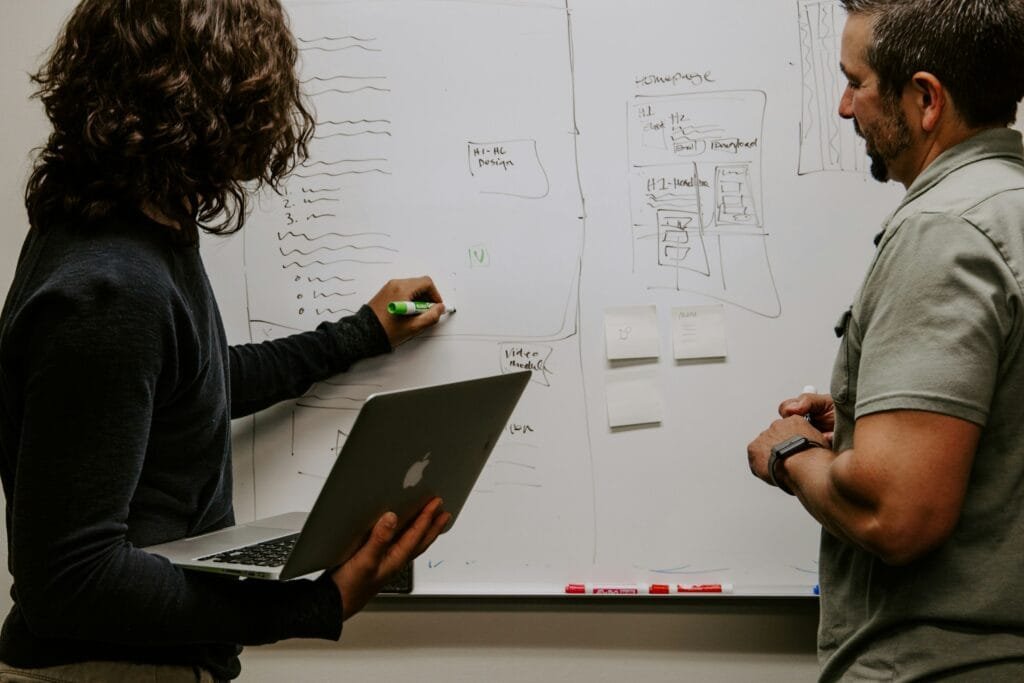
While soft skills may not always be the primary focus in applications, especially for entry-level positions, their impact cannot be underestimated. Soft skills can significantly distinguish between candidates and effectively communicating their benefits to an organisation can enhance your chances of a successful application.
In this article, we delve into the meaning of soft skills, explore the differences between hard and soft skills, and provide practical tips on how to highlight soft skills in your resume and during interviews.
Soft skills are interpersonal skills that describe how a person interacts and engages with other people in the organisation. Soft skills are required for all jobs, whether you’re a senior leader in a department or perhaps a data entry clerk on your first job after graduating from university.
Soft skills might sound like they’re not as important as qualifications or technical skills, but they can be a critical part of your career success. Those who are often high achievers have enhanced their soft skills from an early age.
There is no exhaustive list of best soft skills for resumes and CVs. Soft skills are developed over time, often on the job and these attributes may differ from one job to another. Thus, the best practice is to include attributes that are relevant to your professional person. Below is a list of soft skills for job applications that are relevant across a number of roles:
There are numerous differences between hard skills and soft skills. Hard skills are specific abilities or knowledge you acquire through education, training, or hands-on experience. These are often quantifiable and necessary for the technical demands of a job. Examples include software programming, financial accounting, technical writing, and proficiency in using specialised software tools.
On the other hand, soft skills relate to your personality traits and how you interact with others. They encompass your ability to navigate workplace dynamics, adapt to new situations, and communicate effectively. While these skills can be honed, they are less often taught in traditional educational settings and more nuanced to assess in professional environments.
Soft skills are often cited as the significant difference between candidates. Part of this is because when it comes to hard skills, many candidates will have similar hard skills. For example, those who are applying for a programming job might have the same programming degree, the same skills in programming languages, and perhaps even the same post-graduate qualifications.
Telling the difference between these two candidates would be almost impossible if it weren’t for soft skills. And soft skills also play a critical role in the success of a candidate. A candidate who has better time management and communication skills will be more productive than someone who is constantly late or cannot communicate with members of their team.
Individuals lacking persuasive or leadership abilities often find their career progression and earning potential limited within organisational structures. These soft skills are crucial for ascending to higher levels of responsibility and influence.
Moreover, hiring managers are not only looking for candidates who can fulfill the immediate requirements of a position. They increasingly prioritise the growth potential of applicants, recognizing that those with the capacity to develop can provide more value in the long run. Many HR and recruitment experts advocate for hiring individuals with potential to be trained and developed over those who might currently meet every criterion but show less promise for advancement.
Hiring managers also focus on the future leadership potential of candidates. In their search, they look for soft skills that are indicative of future success in higher roles, such as adaptability, strategic thinking, and the ability to inspire others. This forward-looking approach ensures that new hires not only fit the current needs but are also valuable assets for future organisational growth.
Although there are no formal qualifications for soft skills, numerous resources are available to help you develop these essential capabilities. You can find a wealth of tutorials and courses online on MOOC platforms and even on YouTube. Additionally, professional development courses specifically designed to enhance both specific and general soft skills are widely accessible.
It’s also important to recognize and value the soft skills you naturally possess. Many individuals overlook their innate abilities because they do not traditionally view personality traits as measurable skills. By identifying and promoting these natural strengths in your applications, you can avoid selling yourself short and significantly enhance your competitiveness. These inherent soft skills, often underestimated, can be pivotal in achieving professional success.
For those who are applying for roles in the Australian government, soft skills are going to be a major focus. So here are some tips on how you can list your soft skills on an application.
While many people might think that it is counterintuitive, listing soft skills in the skills section is not very valuable. Soft skills are not tangible, like hard skills, they’re a subjective skill that requires additional proof. Therefore, save soft skills for other sections of the resume, where you can demonstrate what you have.
The best location for any soft skill listing is to demonstrate their application within the work experience section of your resume. Use the bullet points of your duties and achievements to demonstrate what you’ve done using your soft skills, without listing what soft skills you have.
You must be demonstrating their use, not that you have them. Anyone can claim to have great leadership skills, but that doesn’t mean anyone has good leadership skills. The best way to demonstrate anything is to give examples of what you did (actions) and the impact it had. Using statistics quantifies the skills and demonstrates your value to the organisation.
For example, if you want to demonstrate your problem-solving skills, you can state – “Resolved a long-standing bottleneck in the supply chain, enhancing process flow and reducing costs by 15% within the first quarter.” Here, the use of ‘resolved’ as an action verb clearly depicts your problem-solving ability and the tangible benefits it brought.
Soft skills aren’t industry-specific. They can be transferred from one industry or job role to another. In today’s modern working environment, you can focus on new soft skill trends such as virtual teamwork, online project management, and digital literacy.
Not all soft skills are applicable. Conduct careful research into the department that you’re applying for to find what soft skills they want. Then tailor your resume for that job role/department so that it reflects the correct soft skills.
Soft skills might not be the first set of skills that you think about when you create your application or discuss your value with the hiring manager. But for any government job, they can be the decision point between a successful and an unsuccessful application.
Learning how to identify and improve your soft skills can be a great asset. It is equally crucial to adeptly demonstrate these skills in your resume and during the application process.

Public Service Careers Coach, PS Careers Practice Manager